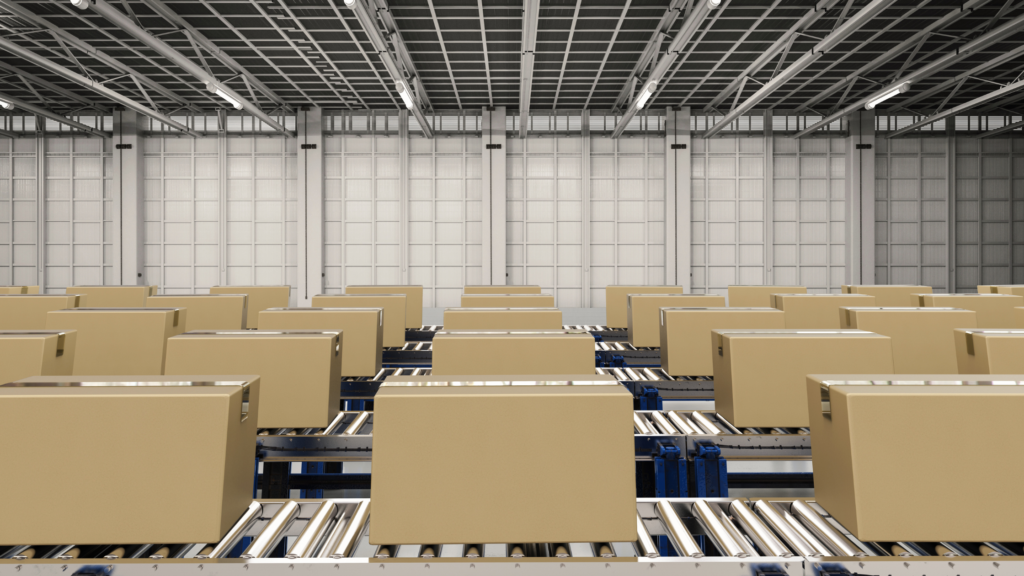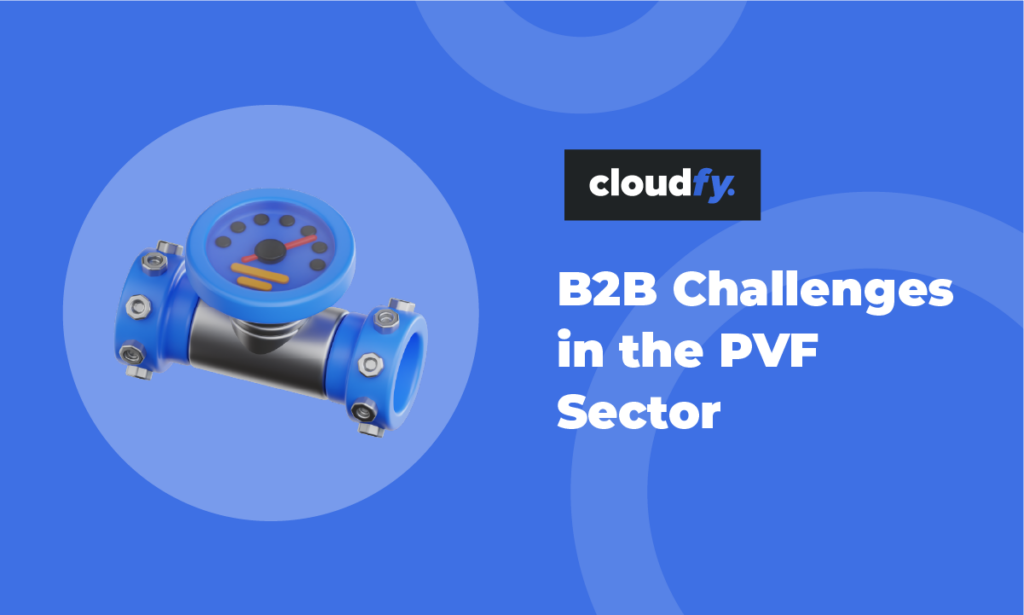There are growing expectations for business to business (B2B) companies to prioritize environmental, social, and governance (ESG) issues. Both customers and investors are looking for evidence of sustainable practices. As a result, sustainable supply chain management is now much higher on the agenda. New technologies play an important role in helping businesses reduce their carbon footprint.
How B2B companies are reducing their carbon footprint with new technologies
Cloudfy’s effectiveness and ease of use will give your customers confidence to buy online. Special offers, promotions and valuable online content can all help them make sustainable choices. Once they are confident with online self-service you can introduce new and more environmentally friendly products and services.
Online orders can be seamlessly passed to sales, finance, stock control and distribution systems for fast and efficient recording and measurement. You’ll reduce the risk of human errors and can automatically offer more sustainable delivery and packaging options.
This year in the United States alone there have been seven confirmed major weather events leading to losses of more than US$1billion. Dramatic weather like this and concerns over our use of resources mean B2B buyers are prioritizing environmental issues.
Decarbonization throughout the supply chain is a driving force for change. Customers are demanding to know what businesses are doing to reduce their carbon footprint. Measuring the overall environmental impact of B2B purchasing choices is becoming an important concern. Organizations urgently need enterprise (ERP) applications that can accurately measure, monitor and help reduce carbon emissions. To build customer confidence environmental data must be captured in near real-time with automated collation and analysis for fast feedback.
Table of Contents
What’s green technology and how can it help?
New technology and business models can support changing purchasing behavior to reduce carbon impact. Green B2B ecommerce provides new and creative options to reduce waste, minimize carbon emissions, and support informed choices from sourcing to manufacturing, shipping, and delivery. This might include recycling options for old products at checkout, data about materials and manufacturing sustainability, tracking and measurement.
Behind this trend is the growing viability of renewable energy, increased commitment to global initiatives, and investor demands for robust ESG programs.
Leading B2B ecommerce providers such as Cloudfy and Adobe are also highlighting the importance of climate change in online purchasing choices.
Over eight out of 10 employees want their employers to do more to reduce the effects of climate change. Almost two thirds say they are more likely to work for companies with strong sustainability policies and practices.
Supply chain partners want to work with companies that share their environmental and social responsibility goals. Investors are looking for much stronger evidence of effective ESG programs.

The importance of environmental transparency
Worldwide regulations are under development that will require reporting of emissions and environmental impacts. This will bring increased expectations for sharing sustainability data and operational transparency.
Green B2B ecommerce providers are likely to play a leading role in these changes. Businesses that help their customers quantify and report on the carbon footprint of their purchasing will have an advantage.
The requirement to provide detailed emissions data with every transaction isn’t very far away. ‘Offsetting’ existing carbon emissions through environmental projects such as re-forestation won’t remove existing carbon impacts. As a result, many advocates and investors are questioning the transparency, regulation and verification of these projects.
Carbon capture and removal technology has potential to offer more. However, delivering and measuring commercially viable and scalable options is still challenging.
Technology-based environmental solutions
Digital communication
integrated business solutions combining your B2B ecommerce platform and back-office systems streamline data sharing and improve communication. Overall, this can significantly reduce your organization’s carbon footprint. For example, using electronic data interchange (EDI) for documents and transactions is cheaper, more efficient and more environmentally friendly.
Supply chain management
Eight supply chains account for more than half of global carbon emissions. Improved processes could significantly reduce emissions and protect the environment.
New technology can improve visibility of the whole supply chain. Shared measurements help customers manage risks and identify opportunities to reduce emissions. Larger buying groups could also drive changes by encouraging investment in more sustainable practices.

AI & ML
All sizes of organization find it hard to collect data about their carbon impact. This is key to understanding and improving business processes.
Advanced technology such as artificial intelligence and machine learning (AI & ML) can help. Large amounts of data can be automatically collected and analyzed in near real time to provide carbon impact insights. This could include buyer behavior, shipment and packaging choices, for example.
Digital twins
Performance measurements throughout the supply chain will help companies track the progress of their decarbonization plans. Digital twin technology can be used to measure and assess supply chain options that improve efficiency. Used with AI technology this can support planning simulations and help to set and meet targets while maintaining profitability.
Blockchain
Blockchain technology has potential to create new economies around sustainability objectives. These might include carbon offset marketplaces, energy management, and tokenization platforms for renewable energy. For example, the Nori marketplace focuses on carbon removal, providing financial rewards for carbon-capture farming practices. Other options include secure traceability throughout the supply chain and support for digital trading in recyclable materials.
Cloud-based solutions
Cloud-based B2B ecommerce technology like Cloudfy is ideal for collecting customer data and onward performance tracking and benchmarking. It can be updated in near real-time so choices can be more easily understood and emissions monitored. Through collaboration with other supply chain partners, you can have a complete end-to-end view. Used with ESG management and monitoring tools like Planetly or Accuvio wider monitoring and reporting can be automated and managed.
Find out how you can build your environmental credentials with Cloudfy. Book a free demonstration today.
B2B companies are leveraging various technologies to reduce their carbon footprint. These include green B2B ecommerce platforms that offer recycling options, data on materials and manufacturing sustainability, and tracking capabilities.
Environmental transparency is crucial for B2B companies due to increasing regulations and stakeholder demands for sustainability reporting.
AI and machine learning technologies enable B2B companies to collect and analyze large amounts of data in near real time. This data can provide insights into carbon impact.
By leveraging AI and ML, businesses can identify areas for improvement, optimize processes, and make informed decisions to reduce their carbon footprint effectively.
Blockchain technology offers opportunities for creating new economies around sustainability objectives.
By facilitating secure traceability throughout the supply chain and supporting digital trading in recyclable materials, blockchain can help B2B companies track and mitigate their carbon impact.
Cloud-based solutions, such as Cloudfy, enable B2B companies to collect and track customer data in near real time, allowing for better understanding of choices and monitoring of emissions.
Through collaboration with supply chain partners and integration with ESG management and monitoring tools, cloud-based solutions provide a comprehensive view of sustainability efforts, automating monitoring and reporting processes.






